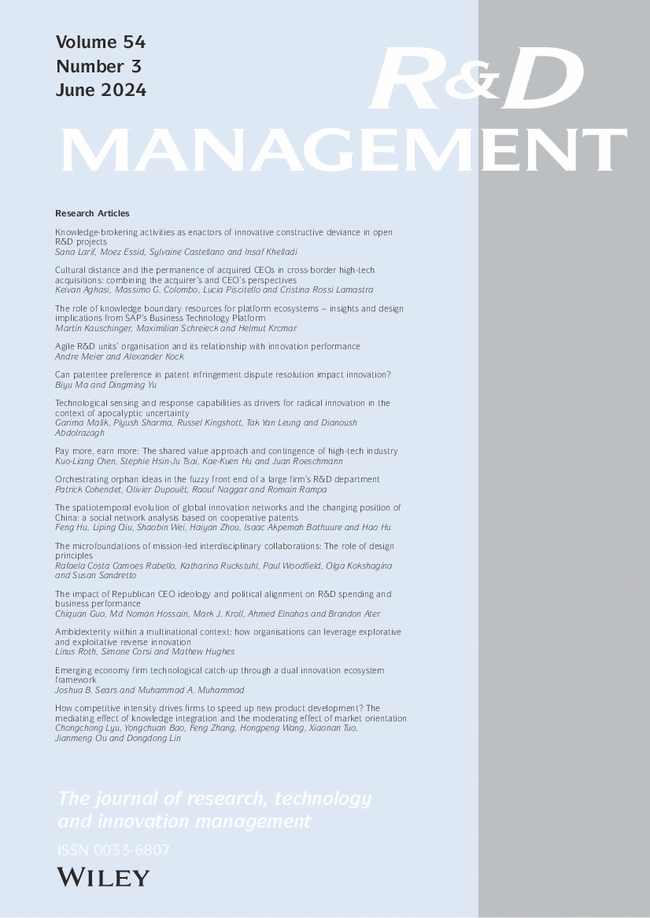拨款申请过程中的相似效应:申请人、小组成员和获得资金的可能性
IF 5.7
2区 管理学
Q1 BUSINESS
引用次数: 0
摘要
我们分析了资助研究小组的特点是否以及如何影响申请人获得资助的可能性,特别是,如果特定类型的小组有利于特定类型的申请人。我们利用英国工程与物理科学研究委员会(EPSRC)的奖励决定,首次在资助背景下测试了相似的假设。我们的主要结果表明,正如“相似对我”假设所表明的那样,小组成员倾向于更多地青睐(或较少地惩罚)与他们特征相似的申请人。例如,我们发现,与质量相对较低的小组相比,申请人的质量对高质量小组更为重要,以基础为导向的小组往往会惩罚以应用为导向的申请人,女性成员较少的小组往往会惩罚女性申请人较多的小组。总的来说,我们表明,在各种各样的功能、与工作相关的研究特征以及更广为人知的人口统计属性中,“与我相似”的效应同时存在。本文章由计算机程序翻译,如有差异,请以英文原文为准。
Similar‐to‐me effects in the grant application process: Applicants, panellists, and the likelihood of obtaining funds
We analyse if and how the characteristics of grant research panels affect the applicants' likelihood of obtaining funding and, especially, if particular types of panels favour particular types of applicants. We use the UK's Engineering and Physical Sciences Research Council (EPSRC) award decisions to test the similar‐to‐me hypothesis for the first time in the grant context. Our main results indicate that panel members tend to favour more (or penalise less) applicants with similar characteristics to them, as the similar‐to‐me hypothesis suggests. We show, for instance, that the quality of the applicants is more critical for panels of high quality than for panels of relatively lower quality, that basic‐oriented panels tend to penalise applied‐oriented applicants, and that panels with fewer female members tend to penalise teams with more female applicants. As a whole, we show that similar‐to‐me effects are simultaneously at work for a wide variety of functional, job‐related research characteristics as well as for more well‐known demographic attributes.
求助全文
通过发布文献求助,成功后即可免费获取论文全文。
去求助
来源期刊

R&D Management
Multiple-
CiteScore
11.30
自引率
9.50%
发文量
0
期刊介绍:
R&D Management journal publishes articles which address the interests of both practising managers and academic researchers in research and development and innovation management. Covering the full range of topics in research, development, design and innovation, and related strategic and human resource issues - from exploratory science to commercial exploitation - articles also examine social, economic and environmental implications.
 求助内容:
求助内容: 应助结果提醒方式:
应助结果提醒方式:


